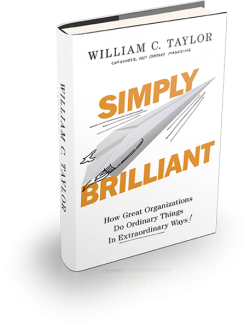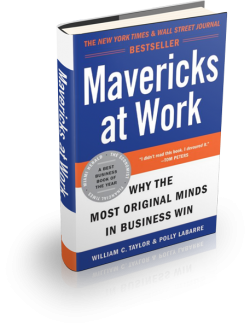I’d like to say I was surprised by the wave of commentary triggered by my most recent post over at Harvard Business Review, but I had a feeling it would get a big reaction. In the essay, titled “It’s More Important to Be Kind than Clever,” I told the story of a touching gesture by a store manager at Panera Bread toward a customer undergoing chemotherapy, described the huge social-media phenomenon the gesture unleashed, and posed two simple questions: “What is it about business that makes it so hard to be kind? And what kind of businesspeople have we become when small acts of kindness feel so rare?”
Those questions obviously struck a nerve with readers, who spent weeks discussing why and how we’ve drummed basic emotions, and simple acts of decency, out of so much of day-to-day business life. As I argued in my earlier post, “In a world that is being reshaped by the relentless advance of technology, what stands out are acts of kindness and compassion that remind us what it means to be human.” Now it’s time to raise the obvious next question: How do we as leaders encourage, spread, and make more “ordinary” ways of behaving that today seem extraordinary? Are there clever ways for leaders to help their organizations become more kind.
Those are huge questions, of course, but my basic answer to is for leaders to think and act in ways that are designed to bring out the best in whomever they encounter. That is, to spend less time scoring, critiquing, and correcting colleagues who make mistakes, and to spend more time identifying and rewarding colleagues who behave the way we wish everyone would behave. Leaders who engage in relentless fault-finding can’t help but lead to a culture of bloodless execution. Leaders who celebrate small acts of kindness, who reward moments of connection, give everyone permission to look for opportunities to have a genuine human impact.


